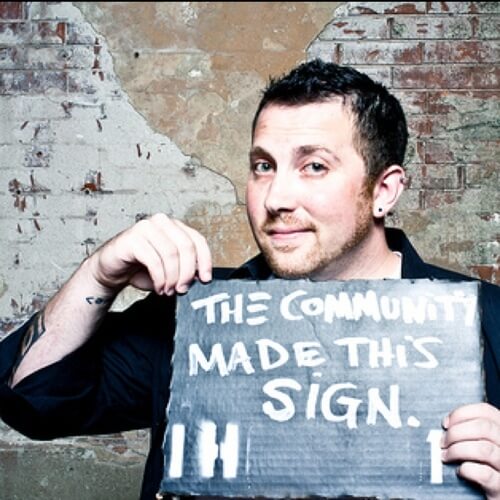When we hear about coworking communities, we generally hear about the new, innovative, collaborative, creative spaces that they inhabit…but we hear a lot less about the interactions between the people in them.
And when we hear about the interactions between coworkers, we generally hear about how coworking can “jump start your business through collaboration” and “inspire you to have new, better ideas”.
What we don’t hear about is the messy side of communities, when people don’t get automatically along like best friends. Conflict is a natural element of human interaction. People who agree with each other all of the time either aren’t very interesting or inspiring or – far more likely – they’re keeping things bottled up inside. It takes observant leaders to notice and strong-minded leaders acknowledge when something isn’t right.
Over 6 years, I’ve noticed some patterns in the the causes for conflict at Indy Hall, other coworking spaces, and community spaces in general:
People are messy. Common areas, especially kitchens, are the first to go. Individual workspaces can easily get out of hand too, and spill over into adjacent areas.
People are noisy. Some people don’t know how to control the volume of their voices. Others have loud, klackety keyboards. Others spend a lot time on the phone. Some just don’t know when to shut up or leave people alone.
People have different senses of humor. “Political correctness” is a wide range. Some people are easier to offend than others.
People work together and the project explodes or goes belly-up. Collaboration isn’t inevitable, but when it does happen there’s an inherent risk: if the project collapses, can the relationship between those people endure or will someone end up losing their coworking community in the divorce?
People feel like they got taken advantage of. Same as above, or worse: somebody actually did take advantage of them.
People drop the ball on their commitments. People make promises that aren’t kept. Everyone makes mistakes, but be on the look out for patterns.
People’s belongings are moved, go missing, or are damaged. From “sorry I just borrowed your iPhone charger” to actual theft & vandalism.
People aren’t able to honor their financial commitments. My policy on membership problems due to financial issues has always been “life happens, but don’t make me chase you.”
People feel entitled to something they’re not getting. Sometimes people expect more than you’re prepared to offer. Other times people just want to believe that they’re special.
Where Conflict Comes From
The #1 conflict creator in communities and sharing is the tragedy of the commons. In its simplest form, you can think of “tragedy of the commons”-type conflicts as what happens when there is an imbalance in taking and giving in the community.
We experience this most commonly during periods of growth: a lot of new members join, and if we’re not working extra hard to help them understand they can contribute instead of just view Indy Hall as a resource to take from, overall cultural norms can shift noticeably and the entire community can begin to feel the effects.
Similarly, if the community begins to get too comfortable, even the smallest changes can be perceived as a personal disruption rather than part of the goal of ongoing improvement for everyone.
Resolving Conflict in Your Community
While these scenarios are general, they have one major theme in common: a breakdown in trust and communication.
The worst thing you can do is pretend that there isn’t a problem. I see this FAR too often – usually because peoples fears are far worse than reality.
The second worst thing you can do is attempt to mend the problem yourself. Healthy communities are remarkably self-healing, and in fact communities can become stronger in the face of a challenge…but you have to give them a chance (and sometimes some guidance) to work things out themselves. A community’s immune system is like a muscle – it needs to be worked in order to get strong. A healthy community can deal with conflict on its own far more effectively than you can on its behalf.
Remind members of core values and the purpose of the community, and help them find common ground rather than a “win/lose” outcome. Very few problems can’t be resolved with this kind of communication.
In all cases, remember that humans are fragile, but remarkably resilient in groups. You have to give people some room to grow together in order for them to be able to work together to solve their own problems, even when your “fixer” instincts are their strongest.
 I am always thinking about the intersection of people, relationships, trust and business. I founded
I am always thinking about the intersection of people, relationships, trust and business. I founded